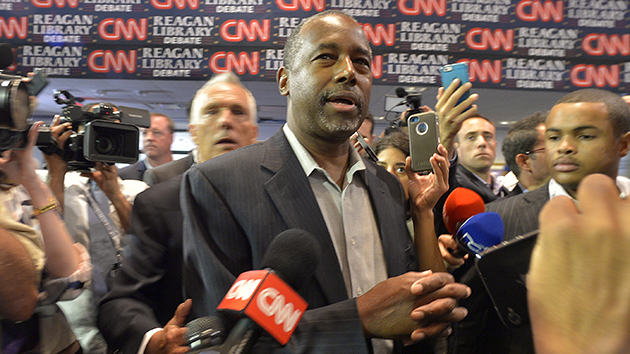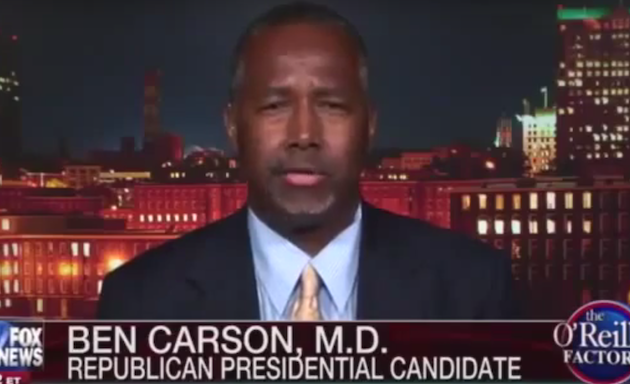
Richard Ellis/ZUMA
Ben Carson, one of the top-tier contenders in the GOP presidential primary, has long been known as an ardent creationist. He has debated prominent scientists who defend evolution, and it’s no secret that his advocacy of creationism springs from his deep faith in the Seventh-day Adventist Church, a Christian religion established in the mid-1800s. Creationism is a core belief for many Seventh-day Adventists, and one of the religion’s founders, Ellen White, was one of the first purveyors of the notion that the Earth is merely 6,000 years old.
This week, Carson, a retired neurosurgeon, took some heat for his creationism when Buzzfeed reported that during a 2011 lecture that was part of a “Celebration of Creation,” Carson decried the Big Bang theory and asserted that Darwin’s theory of evolution was “encouraged” by Satan.
In that talk, Carson did take slight issue with White and those creationists who claim the Earth came into existence just several thousand years ago. He noted, “I am not a hard-and-fast person who says the Earth is only 6,000 years old.” Yet Carson quickly added, “I do believe in the six-day creation.” And he meant literally six days, not metaphorical days—that is, not days that might have lasted millions of years.
He explained:
It says in the beginning God created the heaven and Earth. It doesn’t say when he created them, except for in the beginning. So the Earth could have been here for a long time before he started creating things on it. But when he did start doing that, he made it very specifically clear to us the evening and the morning were the next day because he knew that people would come along and try to say that, “Oh, it was millions and millions of years.” And then what else did he say in the very first chapter? That each thing brought forth after its own kind. Because he knew that people would come along and say, you know, this changed into that and this changed into that and this changed into that. So at the very beginning of the Bible, he puts that to rest.
So Carson may not be hard-and-fast on the when of creationism, but he is a biblical literalist on how long it took for the living Earth and all its inhabitants to come into being: six days.
Carson’s belief is a personal matter, but his fundamentalist religious views may have a political consequence. If Carson, a political novice who has recently placed second behind Donald Trump in many polls due to the support of evangelical GOP voters, actually believes that Satan actively encourages evolution and other misguided notions, then does he consider his adversaries in political or scientific debates to be the useful idiots of the devil? If so, can he accept the idea of compromise or collaboration with those being encouraged and exploited by the Prince of Darkness? His belief in six-day creationism is not merely a curiosity. It is tied to a deeper belief that may profoundly skew how he sees his opponents and the workings of the political world.
Watch him endorse six-day creationism:
















